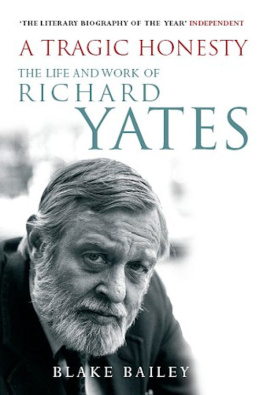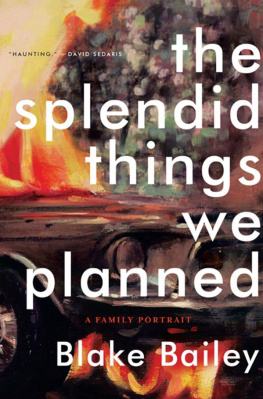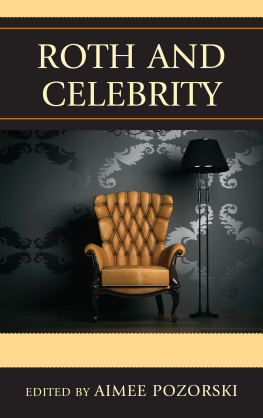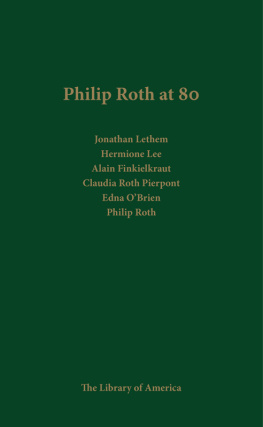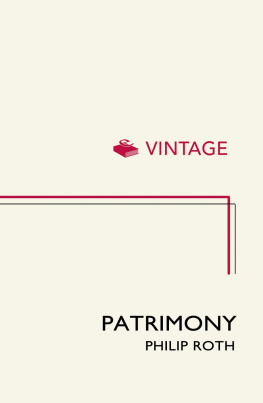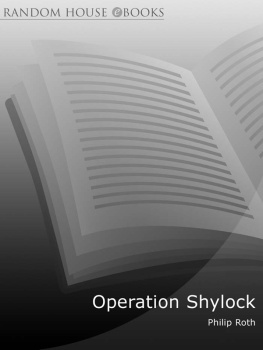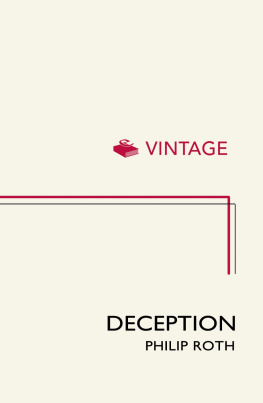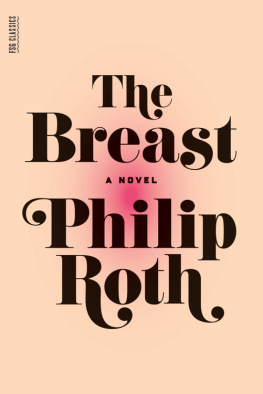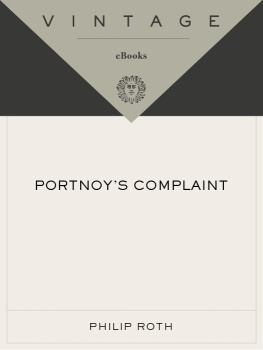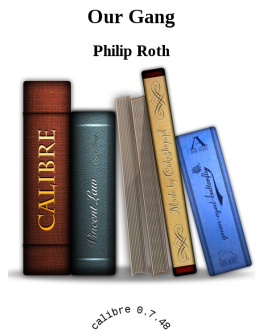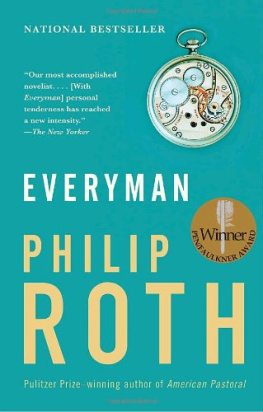Blake Bailey - Philip Roth
Here you can read online Blake Bailey - Philip Roth full text of the book (entire story) in english for free. Download pdf and epub, get meaning, cover and reviews about this ebook. year: 2021, publisher: W. W. Norton & Company, genre: Non-fiction. Description of the work, (preface) as well as reviews are available. Best literature library LitArk.com created for fans of good reading and offers a wide selection of genres:
Romance novel
Science fiction
Adventure
Detective
Science
History
Home and family
Prose
Art
Politics
Computer
Non-fiction
Religion
Business
Children
Humor
Choose a favorite category and find really read worthwhile books. Enjoy immersion in the world of imagination, feel the emotions of the characters or learn something new for yourself, make an fascinating discovery.

- Book:Philip Roth
- Author:
- Publisher:W. W. Norton & Company
- Genre:
- Year:2021
- Rating:5 / 5
- Favourites:Add to favourites
- Your mark:
- 100
- 1
- 2
- 3
- 4
- 5
Philip Roth: summary, description and annotation
We offer to read an annotation, description, summary or preface (depends on what the author of the book "Philip Roth" wrote himself). If you haven't found the necessary information about the book — write in the comments, we will try to find it.
Philip Roth — read online for free the complete book (whole text) full work
Below is the text of the book, divided by pages. System saving the place of the last page read, allows you to conveniently read the book "Philip Roth" online for free, without having to search again every time where you left off. Put a bookmark, and you can go to the page where you finished reading at any time.
Font size:
Interval:
Bookmark:
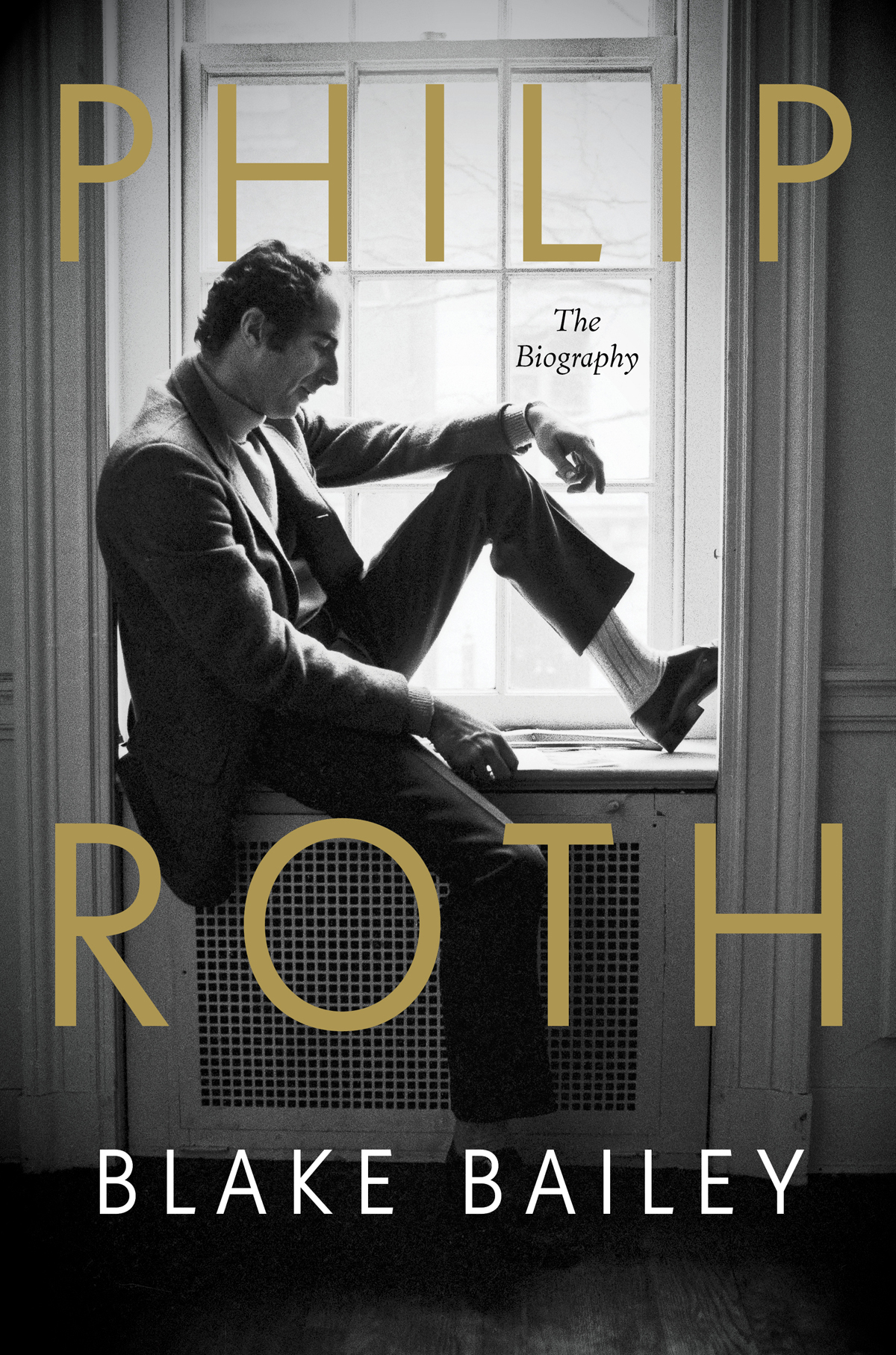


PHILIP
ROTH
The Biography
Blake Bailey


For Mary and Amelia
I dont want you to rehabilitate me.
Just make me interesting.
Philip Roth to his biographer
PHILIP ROTH
O N OCTOBER 23, 2005, PHILIP ROTH DAY WAS CELEBRATED in Newark. Two busloads of fans went on the Philip Roth Tour, stopping at evocative locationsWashington Park, the public library, Weequahic Highwhere passengers took turns reading pertinent passages from Roths work. Finally the crowd disembarked outside Roths childhood home at 81 Summit Avenue, cheering wildly when Roth himself arrived in a limousine. and give me a kiss! said Mrs. Roberta Harrington, the present owner of the house, and Roth kept her at his side the rest of the day. Mayor Sharpe James, whom Roth adored (a big-city mayor with all the bluster and chicanery), said a few words before Roth pulled away the black cloth covering the historical plaque on his house: This was the first childhood home of Philip Roth, one of Americas greatest writers of the 20th and 21st centuries.... Next, Roth and the crowd moved across the street to the corner of Summit and Keer, which a white-on-green street sign now proclaimed to be Philip Roth Plaza.
Afterward a reception was held at Roths childhood library branch, Osborne Terrace, where the mayor rose to the lectern: Now, you Weequahic boys dont think that us South Side boys know how to read, he said to Roth, referring to the mostly black high school hed attended around the time Roth had been at Weequahic. Then the mayor read (wonderfully) a passage from The Counterlife:
If youre from New Jersey, Nathan had said, and you write thirty books, and you win the Nobel Prize, and you live to be white-haired and ninety-five, its highly unlikely but not impossible that after your death theyll decide to name a rest stop for you on the Jersey Turnpike. And so, long after youre gone, you may indeed be remembered, but mostly by small children, in the backs of cars, when they lean forward and tell their parents, Stop, please, stop at ZuckermanI have to pee. For a New Jersey novelist thats as much immortality as its realistic to hope for.
Finally it was Roths turn to speak: Today, Newark is my Stockholm, and that plaque is my prize. I couldnt be any more thrilled by any recognition accorded to me anywhere on earth. Thats all there is to say. A few days earlier, his friend Harold Pinter had won the Nobel.
whose skill and power are greater than his admittedly great reputation, wrote the eminent critic Frank Kermode, eight years before, after reading American PastoralRoths novel about the fall of Newark, and the larger loss of American innocence in the sixties, which would go on to win the Pulitzer. Kermode may have been thinking of an earlier novel, also set in Newark, on which much of Roths reputation continued to rest: Portnoys Complaint, his 1969 best seller about a mother-haunted, shiksa-chasing Jewish boy who masturbates with a piece of liver (I fucked my own familys dinner). Much of what Roth later wrote was in reaction to the mortifying fame of this bookthe widespread perception that Roth had written a confession instead of a novel, and never mind the perception among elements of the Jewish establishment that Roth was a propagandist on a par with Goebbels and Streicher. The great Israeli philosopher Gershom Scholem went so far as to suggest that Portnoy would trigger something akin to a second Holocaust.
Given his whole magisterial oeuvrethirty-one booksRoth would earnestly come to wish hed never published Portnoy. I could have had a serious enough career without it and I would have sidestepped a barrage of insulting shitcharges of Jewish self-hatred, misogyny, and general unseriousness. Id written this book about sex and jerking off and whatever, so I was a kind of clown or fuck artist. But then I finally beat them down. Fuckers.

ROTH WAS AMONG the last of a generation of heroically ambitious novelists that included such friends and occasional rivals as John Updike, Don DeLillo, and William Styron (a neighbor in Litchfield County, Connecticut), and arguably Roths work stands the best chance of enduring. In 2006, The New York Times Book Review canvassed some two hundred writers, critics, editors, and other literary sages, asking them to identify the single best work of American fiction published in the last twenty-five years. Six of the twenty-two books selected for the final list were written by Roth: The Counterlife, Operation Shylock, Sabbaths Theater, American Pastoral, The Human Stain, and The Plot Against America. of fiction of the past twenty-five years, A. O. Scott wrote in the accompanying essay, [Roth] would have won.
But of course Roths career extended well beyond the prescribed twenty-five years, beginning with Goodbye, Columbus, in 1959, for which he won the National Book Award at age twenty-six. His third novel, Portnoys Complaint, was on the 1998 Modern Library list of the 100 best English-language novels of the twentieth century, while American Pastoral was, with Portnoy, subsequently included on Time magazines 100-best list of 2005. During the fifty-five years of his career, Roths evolution as a writer was astounding in its versatility: after the deft satire of his early stories in Goodbye, Columbus, he went on to write two somber realistic novels (Letting Go, When She Was Good) whose main influences were Henry James and Flaubert respectivelyan odd apprenticeship, given the outlandish farce of the Portnoy era that followed (Our Gang, The Great American Novel), the Kafkaesque surrealism of The Breast, the comic virtuosity of the Zuckerman sequence (The Ghost Writer, Zuckerman Unbound, The Anatomy Lesson, The Prague Orgy), the elaborate metafictional artifice of The Counterlife and Operation Shylock, and finally a synthesis of all his gifts in the masterly, essentially tragic American Trilogy: American Pastoral, I Married a Communist, and The Human Stain. In the final decade of his career, Roth continued to produce novelsalmost one a yearexploring profound aspects of mortality and fate. Altogether his work forms we have of the way we live now, as the poet Mark Strand put it in his remarks for Roths Gold Medal at the 2001 American Academy of Arts and Letters ceremonial.
Roth deplored the misconception that he was essentially an autobiographical writer, while making aesthetic hay of the matter with lookalike alter egos that include a recurring character named Philip Roth. Some novels were more autobiographical than others, to be sure, but Roth himself was too protean a figure to be pinned to any particular character, and relatively little is known about the actual life on which so vast an oeuvre was supposedly based. Some of the confusion on this point was deeply embarrassing to the author. I am not Alexander Portnoy any more than I am the Philip Roth of Claire [Bloom]s book, he brooded over the actresss scurrilous 1996 memoir,
Font size:
Interval:
Bookmark:
Similar books «Philip Roth»
Look at similar books to Philip Roth. We have selected literature similar in name and meaning in the hope of providing readers with more options to find new, interesting, not yet read works.
Discussion, reviews of the book Philip Roth and just readers' own opinions. Leave your comments, write what you think about the work, its meaning or the main characters. Specify what exactly you liked and what you didn't like, and why you think so.

